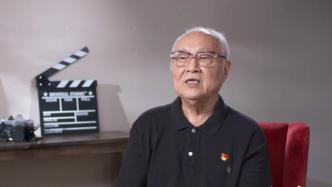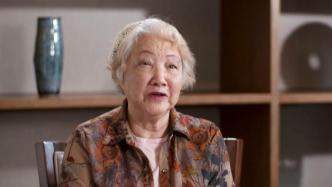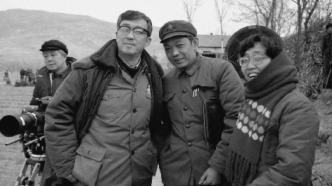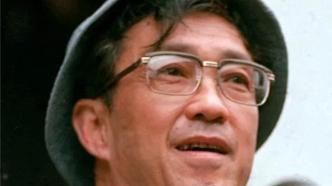
When Xie Jin first joined Shanghai Film Studio, he shot a movie called "A Storm". After that, Xie Jin's movies and life have always been turbulent. Even Xie Jin himself once laughed at himself, "My Every movie is 'a storm'."
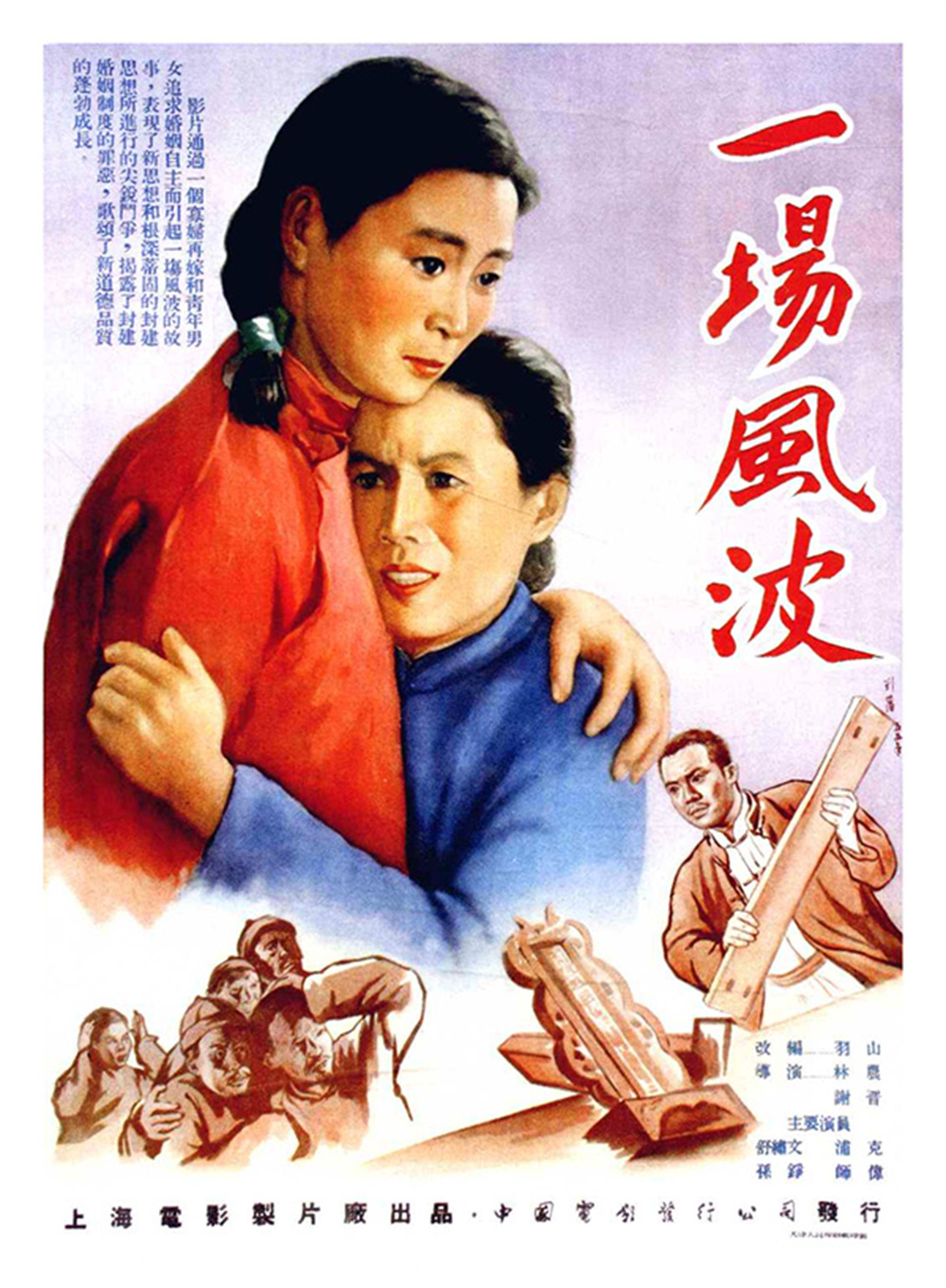
"A Storm" Poster
It is precisely from these turmoils that we see a film director's obsession and dedication to art, and we also see the medals carved by time and destiny on a tough and shining person.
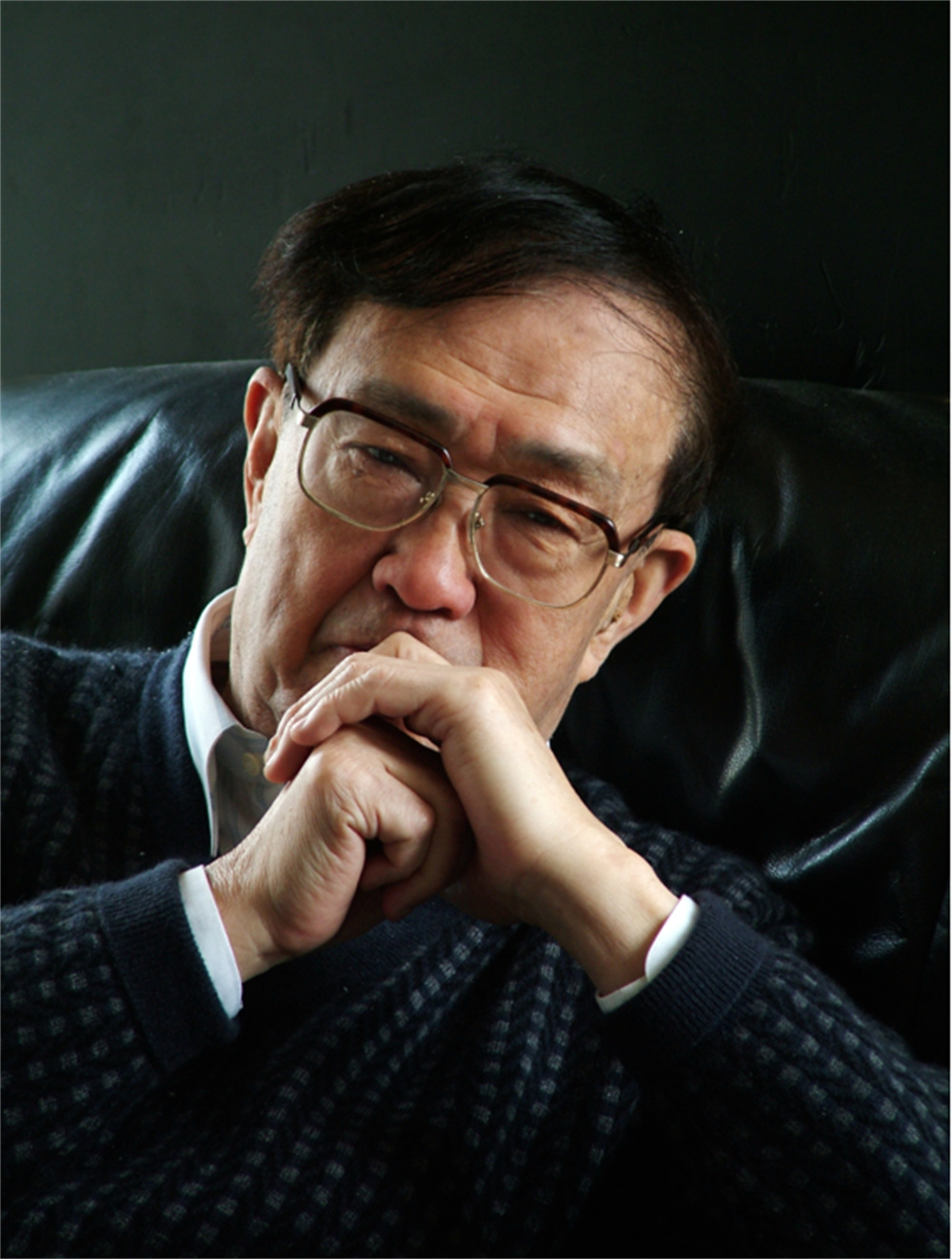
Xie Jin
The "Championism" of "Women's Basketball No. 5"
In 1957, New China's first color sports film "Women's Basketball Team No. 5" was the beginning of Xie Jin's real influence. The film became a sensation, and Xie Jin even won the honorary title of "Advanced Chinese Sports Worker" as a literary and artistic figure.
But when the film was sent to the International Film Exhibition of the World Youth Festival in Moscow, news suddenly came: The leaders of the Sports Bureau thought there was something wrong with the film. "It does not reflect the leadership of the party" and "has a tendency of 'championship'". The competitive spirit conveyed in the film is contrary to the "friendship first, competition second" advocated by the entire society at that time. Xie Jin's film was almost killed. Later, it was the approval of two leaders, Zhou Enlai and He Long, that saved the film.
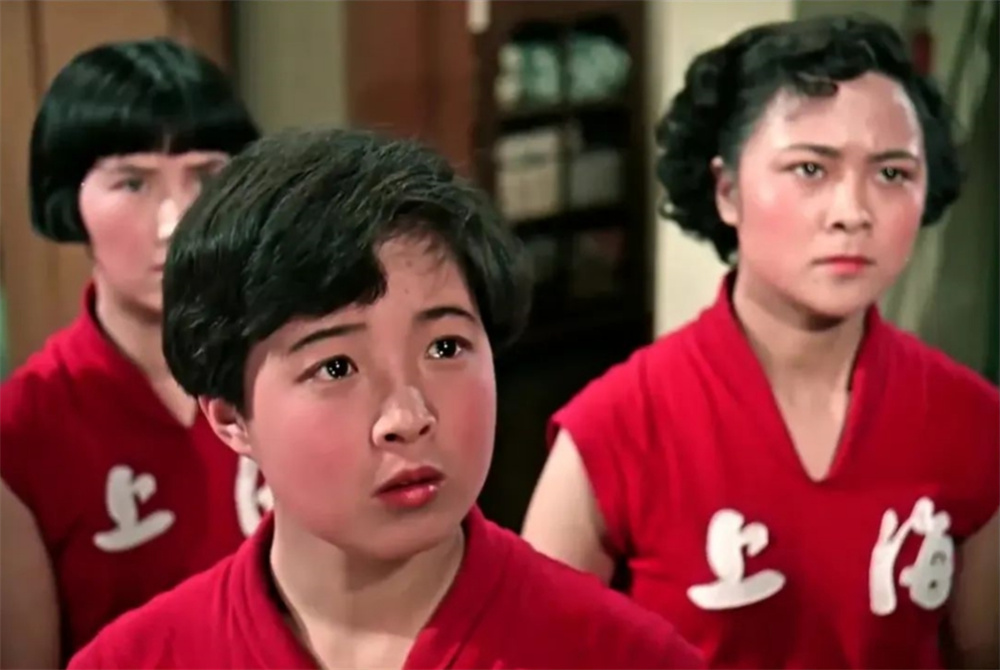
"Women's Basketball No. 5" stills
"The Red Detachment of Women" "The Eyes That Can't Be Cut Out"
"Red Detachment of Women" filmed in 1960 is a representative masterpiece of Xie Jin during the "Seventeen Years of Film Period". The vitality and high spirits displayed by Wu Qionghua and the Detachment of Women with her "big hot eyes" in the film are an indelible mark of an era.
But this film made Xie Jin often feel unhappy when talking about it in his later years, because he failed to save the love between Wu Qionghua and Hong Changqing in the film.
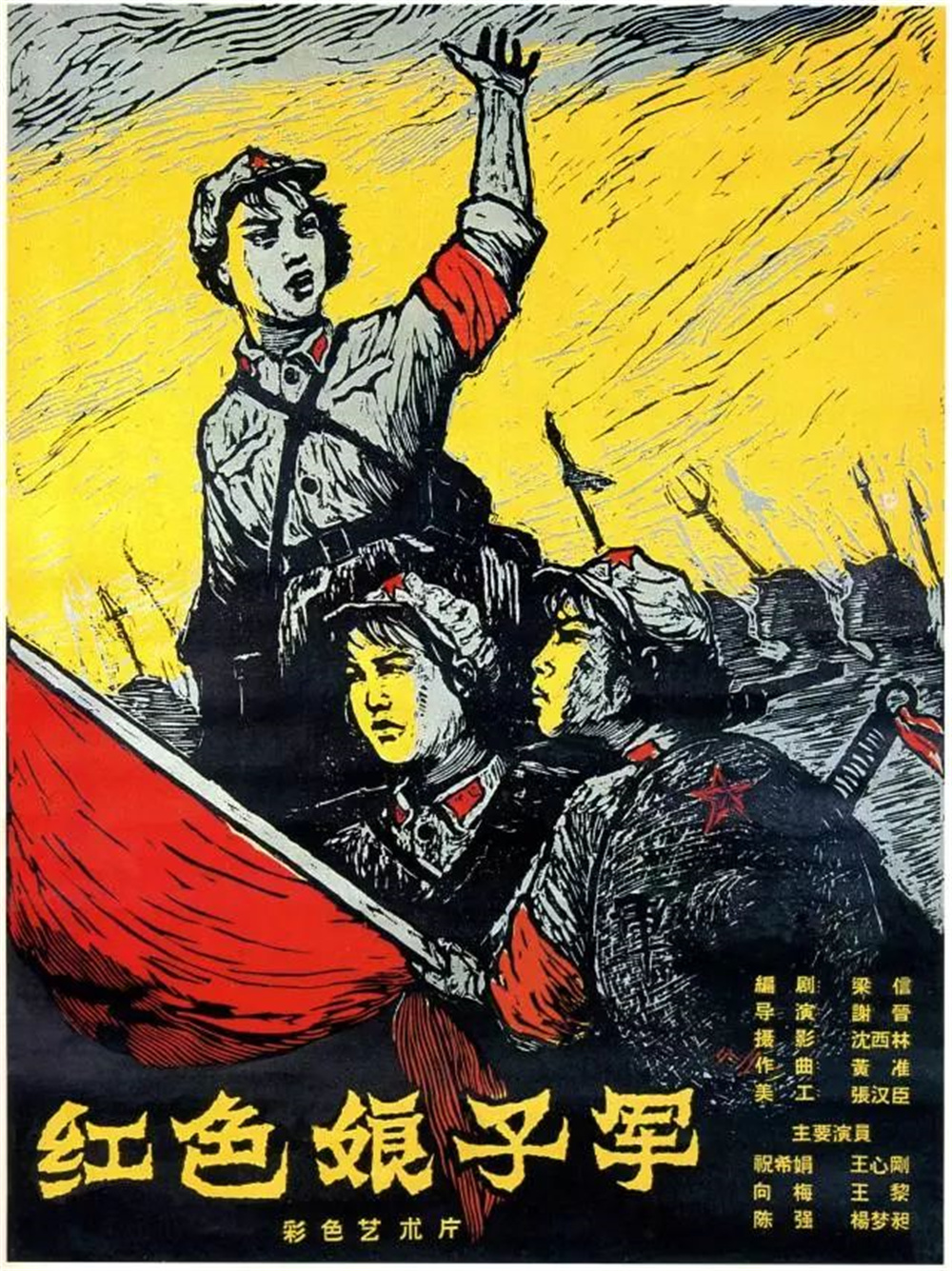
"Red Detachment of Women" poster
As early as the beginning of the filming of "Red Detachment of Detachments", some people pointed out that "Red Detachment of Detachments" showed signs of "cruel war" and "superfluous love", but Xie Jin insisted on his observation and praise of human nature, believing that "Wu Qionghua is very, very special to Hong Changqing." Healthy Love”. Faced with the suggestion to delete the love scene, Xie Jin once firmly opposed it. At that time, Xia Yan, Chen Huangmei and other leading cadres also tried to protect it, but "organizational decisions" were above all else. Xie Jin also knew that "the anti-rightist movement was not long ago, and everyone was careful" cautious".
Later, when he talked about this experience, he always felt regretful, "gritting his teeth and snapping, snapping, snapping," and some of the scenes that he really couldn't bear to part with and the shots that he kept had to replace the lines. Fortunately, the "eyes of love" in the movie could not be edited. dropped.
"Stage Sisters" became a "big poisonous weed"
"Stage Sisters", which caused Xie Jin "big suffering", became a sensation when it debuted in 1965. This film has a unique perspective and a strong sense of life, reflecting the stage life and different life path choices of a pair of Shaoxing opera sisters. The charm of Jiangnan and the charm of women are both beautifully filmed. The fate and emotional joys and sorrows of the characters firmly capture the hearts of the audience, but it also makes Xie Jin firmly grasped by those who are interested in the "handle".
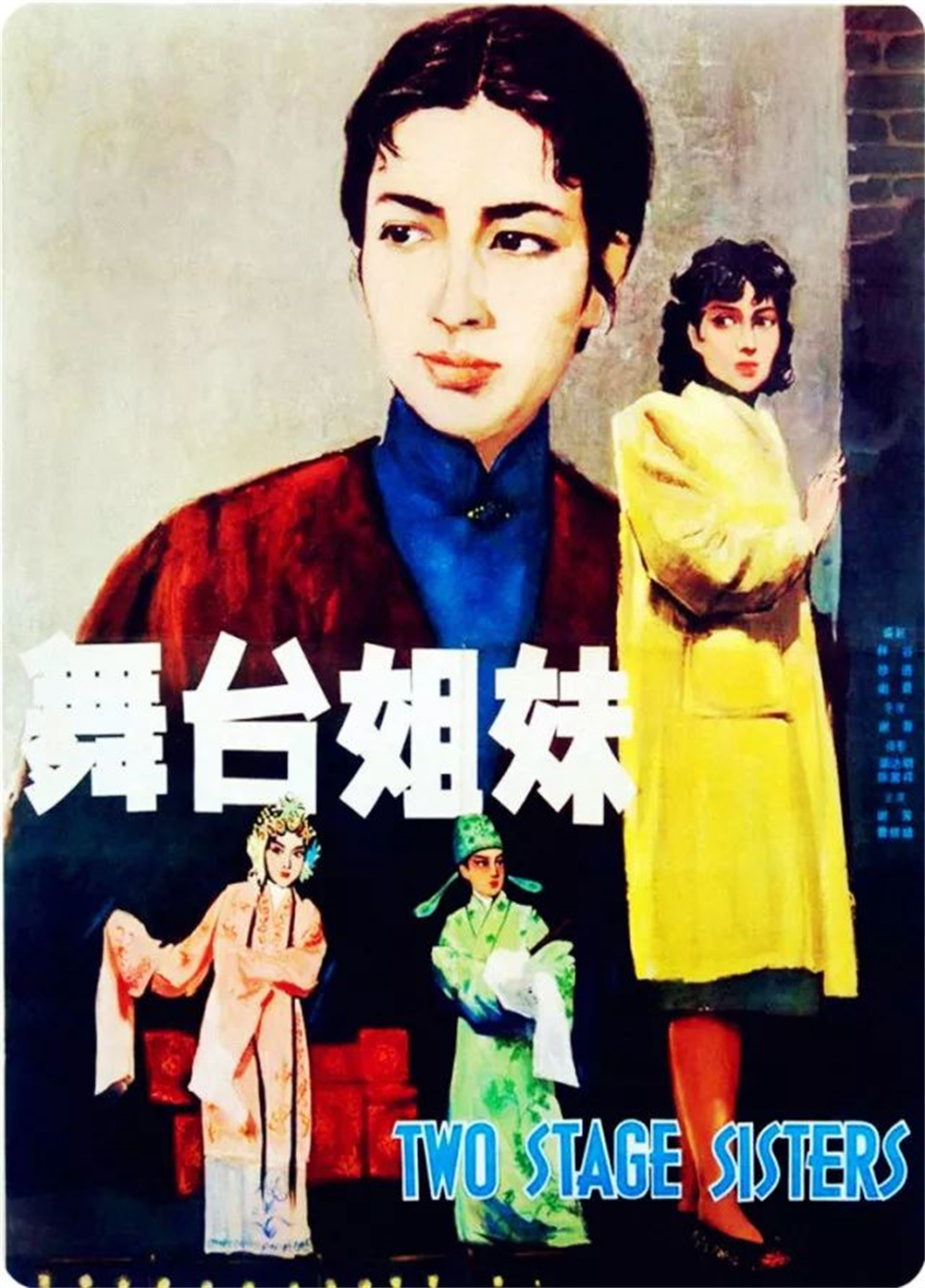
"Stage Sisters" poster
Although Xie Jin had previously "compromised" and changed the original meaningful question in the film - "I am thinking, what kind of person should I be in the future and what kind of drama will I sing?" to a more political "From now on?" , we want to be revolutionaries and sing revolutionary dramas." However, the censure that he could not avoid was still overwhelmingly swept towards him.
The success of "Stage Sisters" was labeled as "bourgeois humanity", and the film was also labeled as a "poisonous weed". Critical big-character posters were plastered all over the Shanghai Film Studio.
This experience was the darkest moment in Xie Jin’s life. He once wrote in his memory article——
"During the 'Cultural Revolution', my film "Dancing Sisters" was beaten into a poisonous weed, but I did not cry when I was taken to the Cultural Square for a denouncement meeting of 100,000 people. On the way home, I saw two idiots I cried when my son was stuffed into the trash can and forced to eat garbage. At that time, I had the idea of suicide many times, but when I thought about the child, I gave up the idea again. I thought what if It doesn't matter, sir, if I die, what will happen to my two sons? How can they survive!"
He hugged his mother and had a "peculiar expression" on his face
Xie Jin suffered a huge blow during the "Cultural Revolution". The most tragic thing was that both of his parents chose to end their lives during this period. Xie Jin's father was a famous accountant who sponsored two cousins to defect to the New Fourth Army. After liberation, he immediately donated all the property in his hometown to the country. Because of the turmoil of "Stage Sisters", too many incomprehensible things and malice came to the Xie family. The old man passed away leaving a small note saying "I'm leaving first, you guys live well". Soon after, Xie's mother also committed suicide by jumping off the building.
Xie Jin recorded this heart-wrenching moment in his "Xie Jin Talks about Art" - "I lifted the sheets and picked up my mother from the ground. At that time, many people gathered around to watch. Some people talked about me, saying that Xie Jin was holding my mother, I'm still smiling. Actually, I'm not smiling, my mouth is crooked, it's a very strange expression."
After the "Cultural Revolution" ended, Xie Jin lamented, "After ten years of catastrophe, many directors of the older generation have passed away. Those of us who were called young directors before have now become old directors. Time has passed for us. It’s very urgent. We should concentrate more on our efforts and goals to create. In the jargon of movies, ‘the focus must be real’!”
With such a mentality, Xie Jin opened a new peak in his creative vision. The response to the "Reflection Trilogy" became higher and higher, and the turmoil in the waves never calmed down.
Several times, I almost lost "Legend of Tianyun Mountain"
When Xie Jing first accepted the script of "The Legend of Tianyun Mountain", he encountered firm opposition from his wife Xu Dawen. His wife reminded him that a novel is one thing, but making it into a movie would have a huge impact, and it would be serious if something went wrong. After the formation of the film crew, the discussion on "how to master policy issues" has not stopped. When we went to Jiuhua Mountain to shoot outdoor scenes, there was another wave of "anti-rightist themes are unacceptable".
Wang Fuli, who played Song Wei, later recalled: "(The then director Xu Sangchu) rushed to the location where we were filming several times and repeatedly worked for Director Xie, saying that the superiors could not get through and would not let the filming continue unless the script was changed. Thank you The director was very distressed. We were all under pressure and changing the script while filming. We had no idea whether the film would be released after filming was completed. Several times, "Legend of Tianyun Mountain" almost ended."
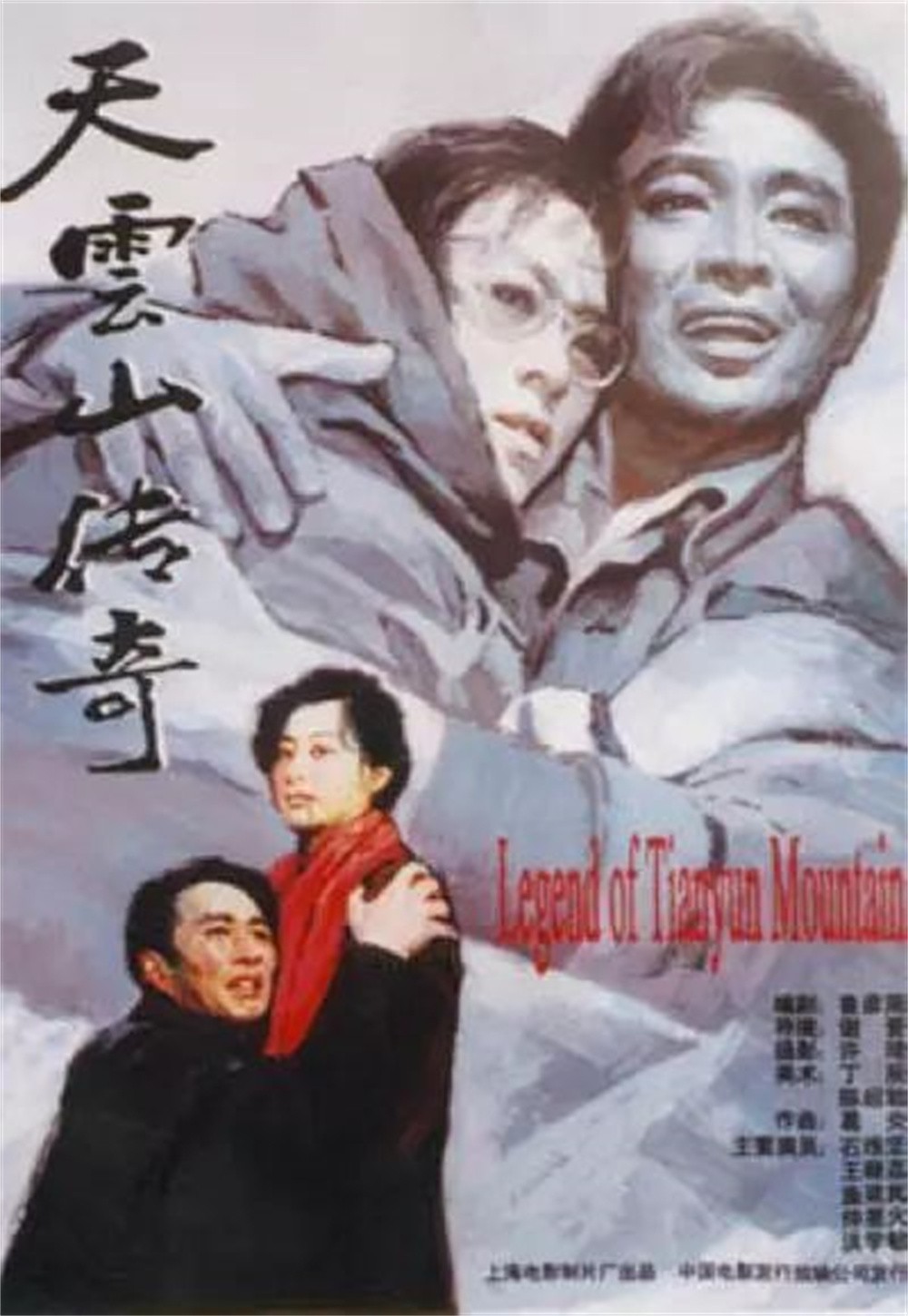
"Legend of Tianyun Mountain" poster
When the movie was finished and released, "Legend of Tianyun Mountain" was released in one province after another. Everyone was trembling and prepared to "ban" it at any time. Some review articles labeled the film as "completely distorting the historical truth of the anti-rightist struggle", "destroying the image of the party" and "being a reflection of bourgeois liberalization trends in literature and art", but it quickly attracted attention. In the face of fierce rebuttals from other critics, the intellectuals who took advantage of the nationwide craze to watch movies became more and more hard-lined and supported the movie.
The support and support from all parties gave Xie Jin the confidence. He wrote in his artistic summary that as an artist, if you don’t keenly discover, bravely expose, and shout loudly, there will be no end to those things that hinder the development of the country. Take your responsibility!
The first golden rooster laid "double yolk eggs"
In 1981, the year of the rooster in the lunar calendar, the China Film Association selected the Chinese Film Golden Rooster Award for the first time. While the awards for best director, photography, art, etc. have all been judged, the list of best films is still under intense discussion.
The candidate film "Legend of Tianyun Mountain" has become a focus of controversy. Some people say that they cannot risk naming "Legend of Tianyun Mountain" as the best film. However, Xia Yan and Chen Huangmei, who preside over the work of the Filmmakers Association, are firm and must let "Legend of Tianyun Mountain" win the award.
On the last day when the list was announced, the judges discussed until the early hours of the morning. In the end, "Legend of Tianyun Mountain" and "Bashan Night Rain" jointly won the best feature film at the first Golden Rooster Award, and Xie Jin won the best director award.
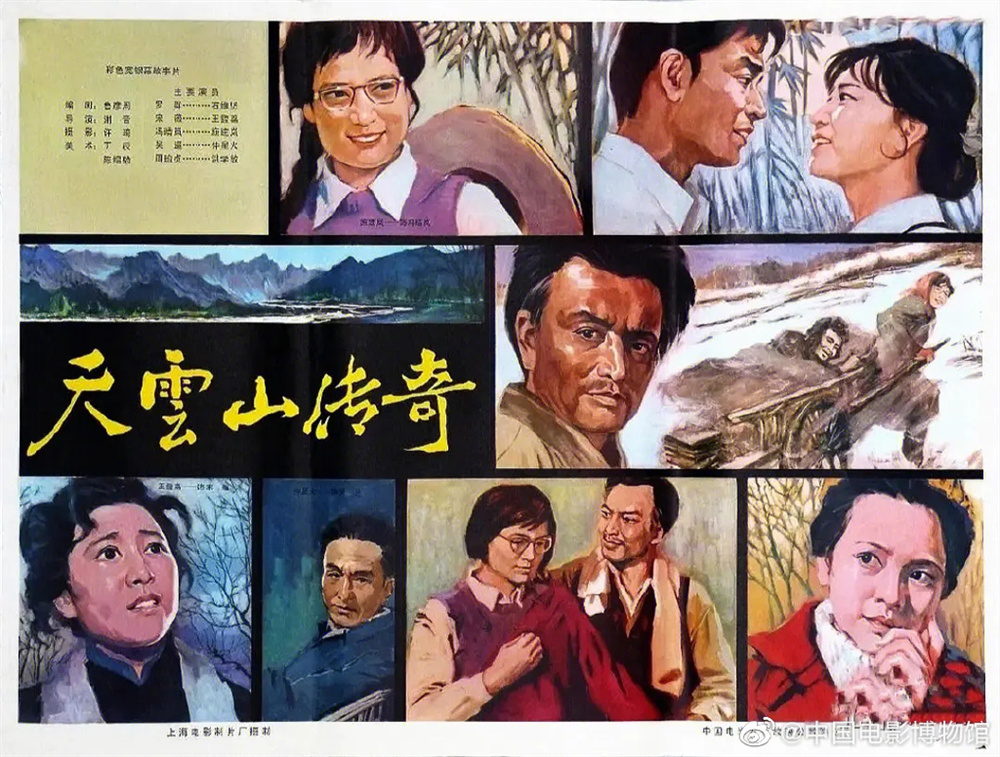
"Legend of Tianyun Mountain" poster
The time has come for our country to produce "big movies"
The film "Garland Under the Mountain" released in 1984 brought the most popular novel in the country to the big screen at that time. Based on Li Cunbao's original work, Xie Jin sublimated the feelings of the little people about their family and country, and borrowed the shell of a war movie to With unique and sharp writing, he criticized various ills of the current society and moved audiences across the country.
Faced with this "large-scale" creation at that time, Xie Jin was certainly faced with the same pressure as before, but he said, "There are some sad scenes in the film, but life is far heavier than this. We are still far away from life, It’s really that I’m aloof and have no life, but I’m blaming ‘Is this the case in our lives?’”
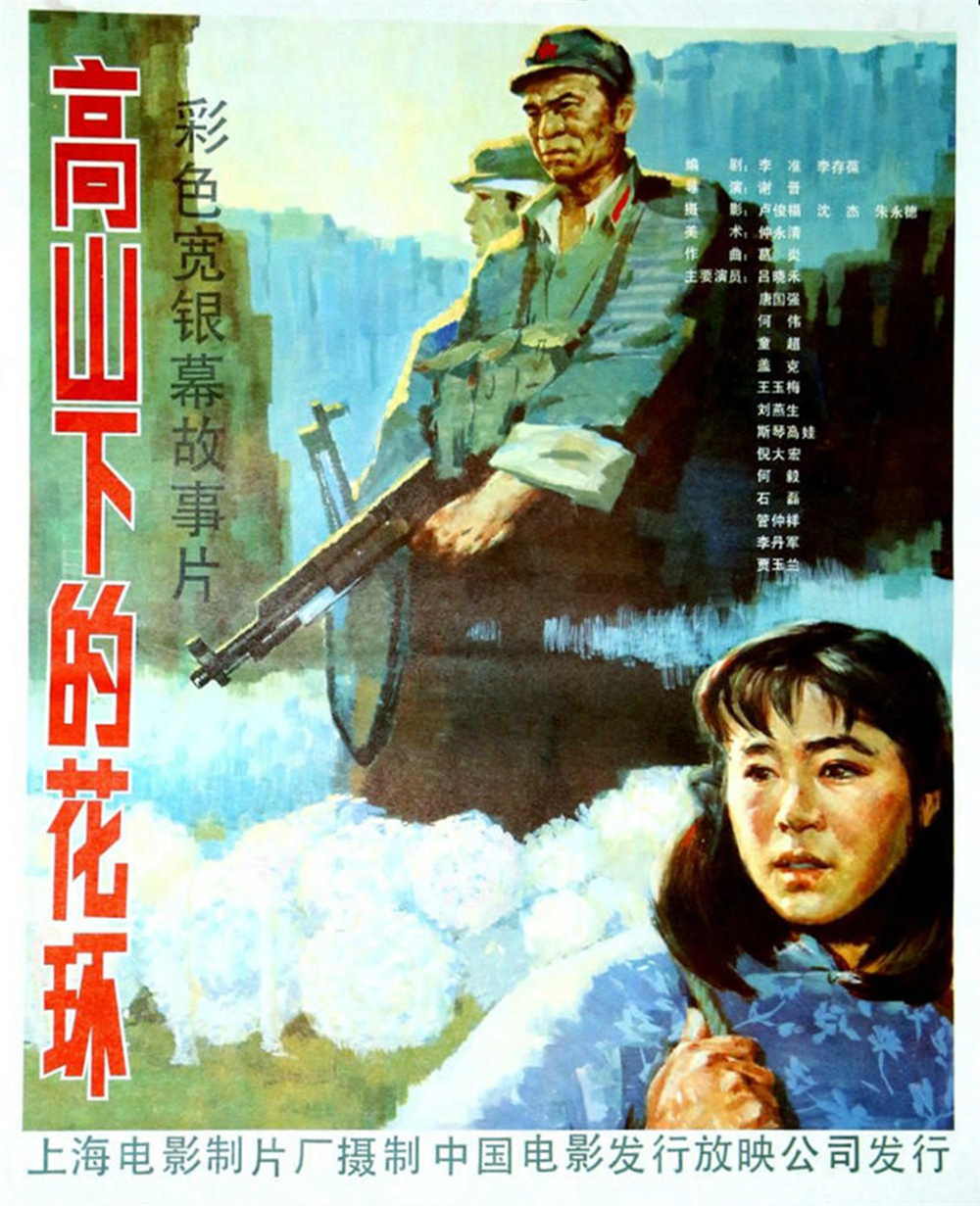
"Wreaths Under the Mountain" poster
From the time the film was filmed to its release, Sino-Vietnamese relations took a 180-degree turn, and it was once rumored that the film would be unable to be screened abroad. In the end, it was Hu Qili, then member of the Standing Committee of the Political Bureau of the CPC Central Committee, who made the decision to let this director Xie Jin's masterpiece travel to the United States along with nine other films to form the slate of his personal film festival.
When Xie Jin talked about this film, he once said excitedly that today, a drama like "Garland Under the Mountain" that exposes contradictions and truly reflects life has been filmed and acted, and has been well received by everyone. Excitingly, it can be said that the time for our country to produce "big movies" has arrived.
The unfilmed Battle of Chibi
In fact, as early as the first half of the 1980s, Xie Jin was already planning a "blockbuster" in his mind. The Battle of Chibi in "The Romance of the Three Kingdoms" was the project he wanted to promote. But in the end it could not be realized due to financial, technical and other reasons. Xie Jin continued this part of his energy into "The Opium War".
"Running in both directions" delayed by plane failure
There are many good stories about actors in Xie Jin's movies, and one of them should have belonged to Brigitte Lin.
"The Last Noble" was originally scheduled to star Brigitte Lin. The original author Bai Xianyong also had high hopes for the pair to interpret his "The Legend of the Immortal", believing that Xie Jin could make this movie "better than "Gone with the Wind"".
Brigitte Lin was seeking a transformation at the time. When Xie Jin entrusted the film script to her, she was deeply moved. She felt that there was no distance between Li Tong and herself, and she was very eager to make this movie with Xie Jin. For this reason, she also recommended I lost a movie invitation from great director Li Hanxiang. Vigorous media publicity was launched at that time, but the Taiwan authorities did not allow Brigitte Lin to go to mainland China to film.
Xie Jin and Brigitte Lin were determined to "go in both directions" at that time. One repeatedly postponed the start of filming and revised the script to reduce the number of scenes in Shanghai to reduce Brigitte's stay in the mainland. The other overcame all difficulties and secretly came to Shanghai to meet the crew. In order to keep it secret, even his own mother had to Didn't tell.
As a result, after discussing the filming, on the way back secretly, due to a malfunction on the plane, all the passengers who had already boarded the plane were asked to get off the plane to wait for the troubleshooting. Lin Qingxia was recognized in the crowd and even appeared in the newspaper. Faced with all kinds of pressure, Brigitte Lin had to give up this cooperation.
"Xie Jin Model" sparks cultural discussion
In 1986, "Wenhui Po" published a literary criticism article titled "Defects of Xie Jin's Film Model". The article mentioned that Xie Jin's films have a "model" that is "arranged according to prescribed procedures", which is the so-called "some kind of transformed film Confucianism". For a time, the cultural circle started a discussion and criticism of the "Xie Jin film model".
This discussion lasted for a long time, and the discussion rose from Xie Jin's film itself to "the present of film" and "the future of the nation." Xie Jin once responded to this, saying, "This argument is inaccurate. I can only say that my works have their own pursuits and styles. 'Model' means solidification and stagnation, and I am still constantly exploring." and innovation, realism itself is constantly evolving and changing..."
Regarding some people's comments about the so-called "Xie Jin movie model", he usually uses "bright tail". Xie Jin said, ""Legend of Tianyun Mountain" has two completely different endings: one is Feng Qinglan's lonely grave standing in the gray mountains, and the other is red rhododendrons all over the mountains and plains, Zhu Wei with melancholy and repentance Come and visit the grave. I am an optimistic person by nature, which decided me to adopt the second ending. However, some people criticized me for adding a tail of light. Can you look at the problem this way?"
Chen Huangmei once said in defense of Xie Jinming, "Even if the films directed by Xie Jin have a 'mode', and this 'mode' is indeed loved and accepted by a broad audience, then why are so many people clamoring to study American entertainment films now? Want to overthrow Xie Jin’s so-called ‘model’?”
No. 1 Best Director as voted by the people nationwide
In the late 1980s, the "China Radio and Television" magazine launched a selection event for the "Best Director of the Decade in the New Era". Among more than 2.7 million votes, 2.6 million were valid votes. Xie Jin won more than 2.4 million votes. Zhang was selected as the first best director.
Xie Jin, who creates for the people, also won the well-deserved People's Choice.
The main battleship of "The Opium War" sank
At the end of 1988, Xie Jin took the lead in establishing Superstar Pictures Company, which is independently operated and responsible for its own profits and losses. On the road to entrepreneurship, Xie Jin said, "I want to use my practice to explore a path that conforms to the laws of art for the Chinese film industry."
As a "blockbuster" with an investment of hundreds of millions in the 1990s, "The Opium War" set many precedents in Chinese film history at that time. This veteran director, who was already over 70 years old at the time, started a pioneering project in the history of Chinese film by using private fundraising methods.
The filming of this film was also about "riding the wind and waves" because a fierce naval battle required a certain number of ships. The crew spent a lot of money to buy four old retired warships built in the early 1960s. Among them is the 600-ton "Velishini", which "acts" as the main battleship attacking Dinghai.
In order to build this warship, Xie Jin specially sent an artist to the UK for inspection. After returning, nine artists and shipyard workers spent several months to modify the domestic retired warship. As a result, there was a typhoon after filming started, and the "Velishini" anchored at the dock unfortunately broke off its anchor, drifted far at sea, hit a rock, and sank.
When Xie Jin heard the news, he was speechless for a long time. He walked sadly by the sea alone in the wind and rain for a long time. After going without food for three consecutive days, Xie Jin cheered up again, got up and said loudly: "Okay, it's all over, get ready to film."
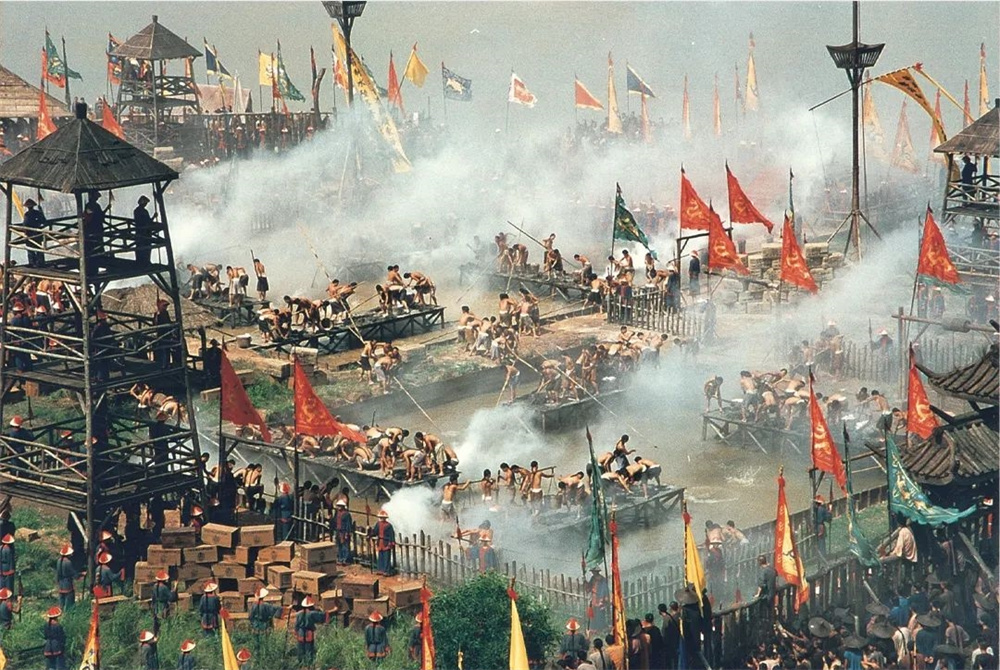
Stills from "The Opium War"
He is a good director and a good father
The "turmoil" in Xie Jin's life was not only in his career, but also in his life. Among the three sons and one daughter, Xie Jin has two sons with intellectual disabilities, but this does not prevent Xie Jin from loving his children throughout his life.
Once, Xie Jin went to Shenzhen to attend the film "Double Award" award ceremony. The host knew that director Xie Jin had many titles and asked him which one he would focus on. Xie Jin said: "I value the title of Vice Chairman of the China Disabled Persons' Federation the most."
Later, when Xie Jin filmed "Morning Star", he also pioneered the use of children with intellectual disabilities in filming. During the filming, he also seemed to transfer his affection for the children to the disabled young actors. He lay on the ground and demonstrated to these children over and over again. He also lowered his voice to imitate cats and dogs, and told them tricks.
Devastated by the death of my beloved son
In 2008, the eldest son Xie Yan died of cancer at the age of 59. Xie Jin was heartbroken.
Xie Jin had high hopes for Xie Yan, and his son lived up to his father's expectations. The film "Daughter is Red" directed by him was shortlisted for the 31st Czech Karlovy Vary International Film Festival and Gui Yalei won the Best Actress Award. Xie Jin had previously won the Crystal Ball Trophy at the film festival for "Furong Town". This subtle echo has also become a legend in the film industry.
Xie Yan was unmarried and spent his whole life taking care of his parents and younger brother. After suffering from cancer, he kept it secret from his family. His sudden death almost crushed Xie Jin, who had suffered a lot throughout his life. After Xie Yan's death, Xie Jin stayed behind closed doors for a long time, unable to eat or sleep. Two months later, Xie Jin also followed in his son's footsteps.
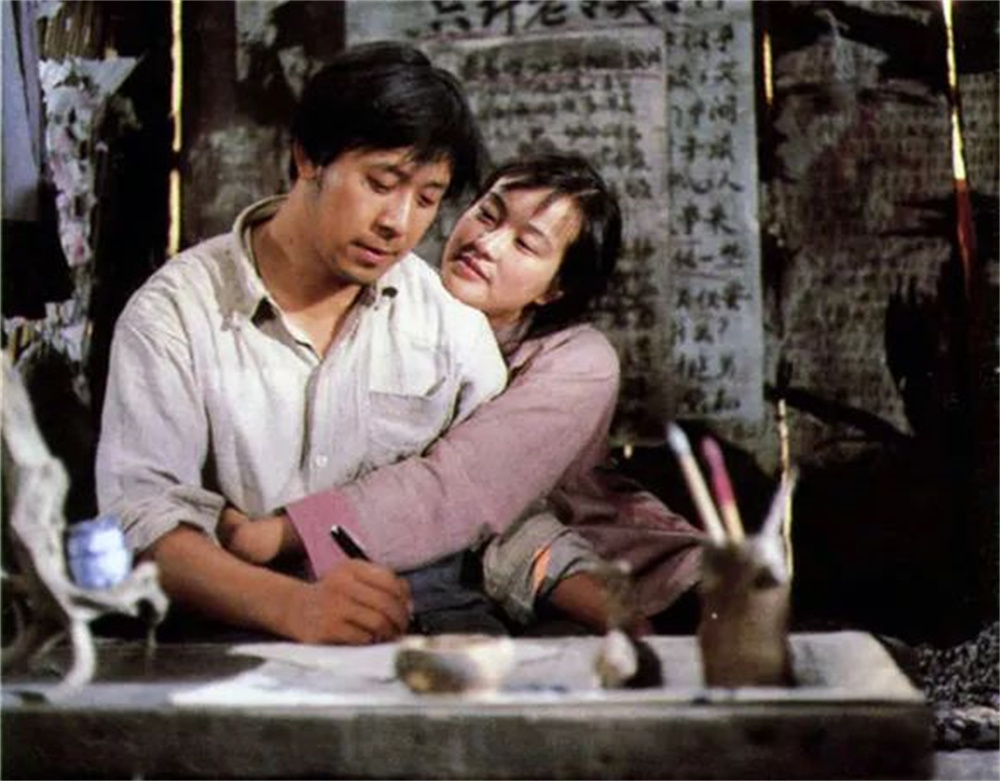
"Furong Town" stills
The old man is helpless, but his ambition remains unfulfilled
Xie Jin once said that he would collapse on the set like the film master he admired, Akira Kurosawa.
In his later years, Xie Jin had many unfulfilled wishes, all of which were about movies. He directed 36 films in his lifetime. Xie Jin's nephew Song Xiaobin, in his book "Xie Jin at Home and Outside the Family", recorded a set of "lists of films that Uncle Xie Jin failed to make in his later years" in his hand, including "Rabe's Diary", "Speaking with the Stone", "Speaking with the Stone" "The Divorced Woman of the Last Emperor", "Youyou on the Piano Bridge", "Romantic Twilight", "The Soul of the Chinese Bridge", "I've Been Here, I'm Very Good", "Adults", etc.
The killings in "Rabe's Diary" made Xie Jin say, "I feel like vomiting after reading it." He had hoped to use this text to make a Chinese version of "Schindler's List," but was unable to do so due to copyright reasons. .
"Stones Speak" is an anti-fascist novel written by Feng Jicai. Xie Jin contacted actor Jiang Wu about the film and went to Tianjin to conduct location scouting.
Writer Wang Xingdong's "The Woman Divorced the Last Emperor" tells the story of a "lucky man" who was sent to the palace by the Japanese to marry Puyi at the age of 15. Xie Jin liked it very much. He wrote to Wang Xingdong the same night after reading the script. "I haven't seen such a good movie script in a long time," said Xie Jin, who was over eighty years old. At that time, he braved the severe cold of more than minus 20 degrees Celsius to go to Changchun to scout locations for the movie. In the end, the outbreak of SARS disrupted the rhythm, and the crew also had financial problems, so it failed to achieve success.
"Piano Bridge" is a film about education in rural China. When Xie Jin contacted the writer He Jianming, he said that he wanted to make a "Chinese-style "Rural Female Teacher"." At that time, Taishun County, a poverty-stricken mountainous area, was selected as the background of the film. He went there many times despite the rugged mountain roads, and worked for several years to invest in the film. However, the theme of rural education was ignored by the market economy, and Xie Jin did not wait until the filming of "Qinqiao Youyou" officially started.
In addition, there are also "The Soul of Chinese Bridges", which is based on the deeds of bridge expert Mao Yisheng, and "The Great Family", which describes the patriotic feelings of Hu Zhifan, the general manager of Shanghai Grand Guangming Cinema, and his life-and-death love affair with Jiangnan famous lady Jin Suwen. These themes are all following The death of director Xie Jin became a sigh.
Ishikawa, a scholar who has been engaged in Xie Jin research for many years, said that Xie Jin was interested in telling humanitarian stories in his later years. Before his death, Xie Yan once told a friend about the current situation of his father Xie Jin: "He has a happy side and a very painful side - now the entire business society has changed. He doesn't shoot martial arts stuff, and he won't cater to it. He has always wanted to make a movie, but it is not easy to find funds now, and there are fewer opportunities to make movies. I think he is suffering in this aspect."
Yin Hong, a professor at Tsinghua University, once said bluntly and helplessly when evaluating Xie Jin, "It is difficult for a person to surpass his own era. In Xie Jin's era, he has done his best and become a banner and a peak. Even today, when watching movies No one can surpass Xie Jin in terms of the depth and breadth of his practical abilities and his ability to influence the public."
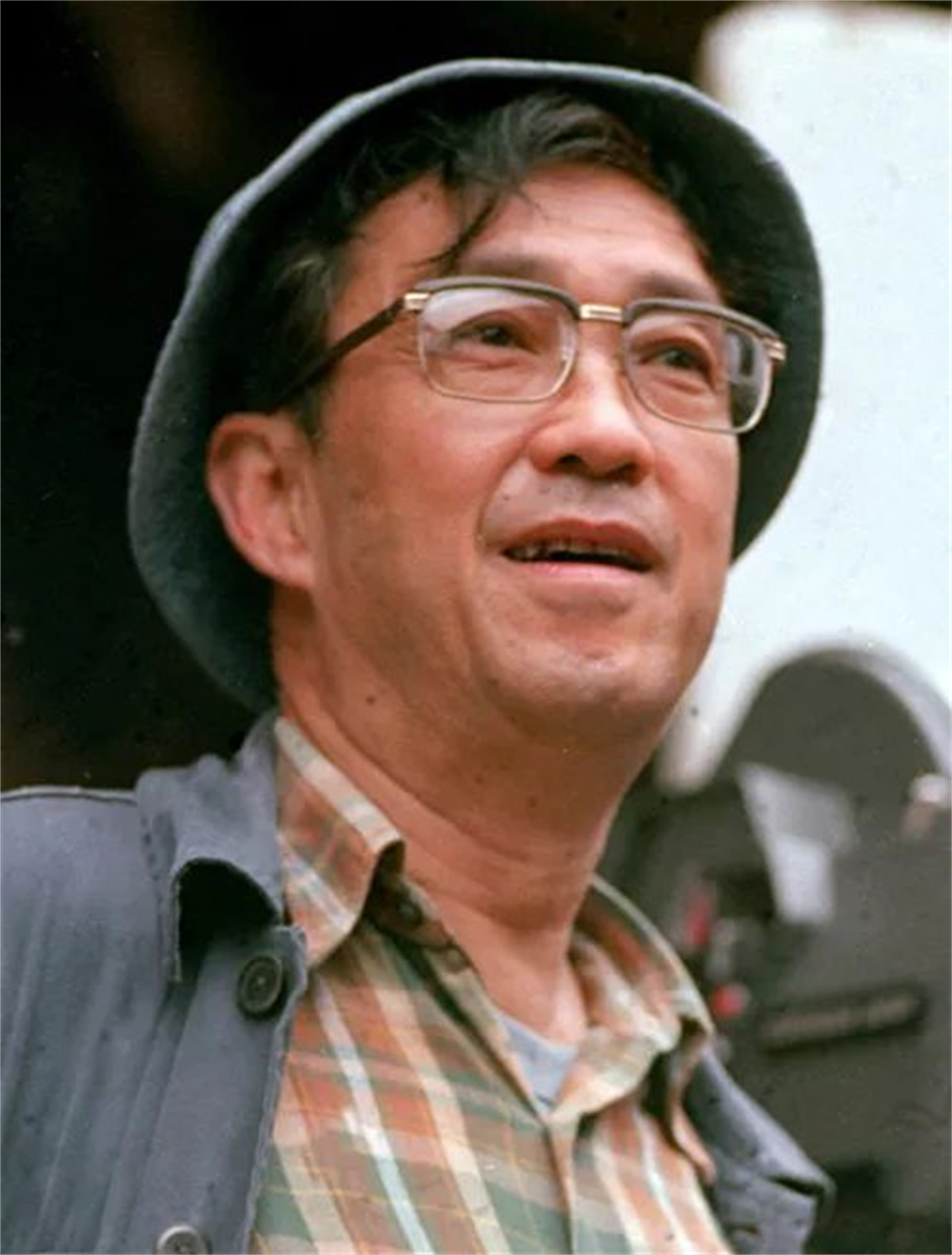
Xie Jin
Xie Jin has never been tired of making films throughout his life and has very high demands on himself. He described the director's work in "Xie Jin Talks about Art" - not only an artist, but also a scholar and a thinker. They are rich in passion, have a strong sense of professionalism, and have a tenacious spirit of dedication.
At the same time, he described his creative mentality this way: "Every time I finish a film, I always feel a lot of regrets, and I never rest on the pile of films I have shot. I always hope and pursue the films I filmed this year and do everything possible. Try to surpass last year, even if it is in one area. Every time I make a film, I always use it as a starting point to 'put on some shoes' for myself."
